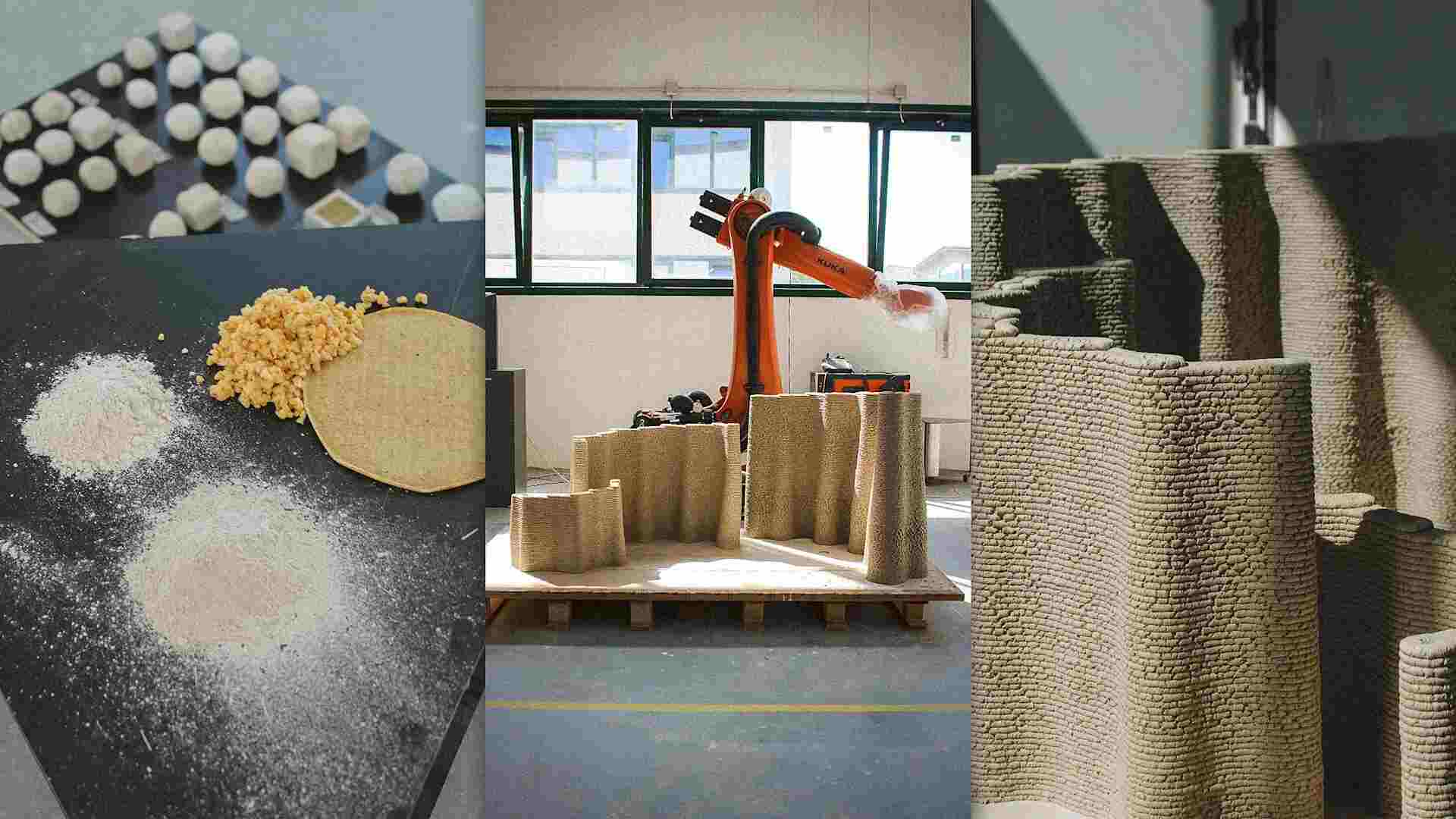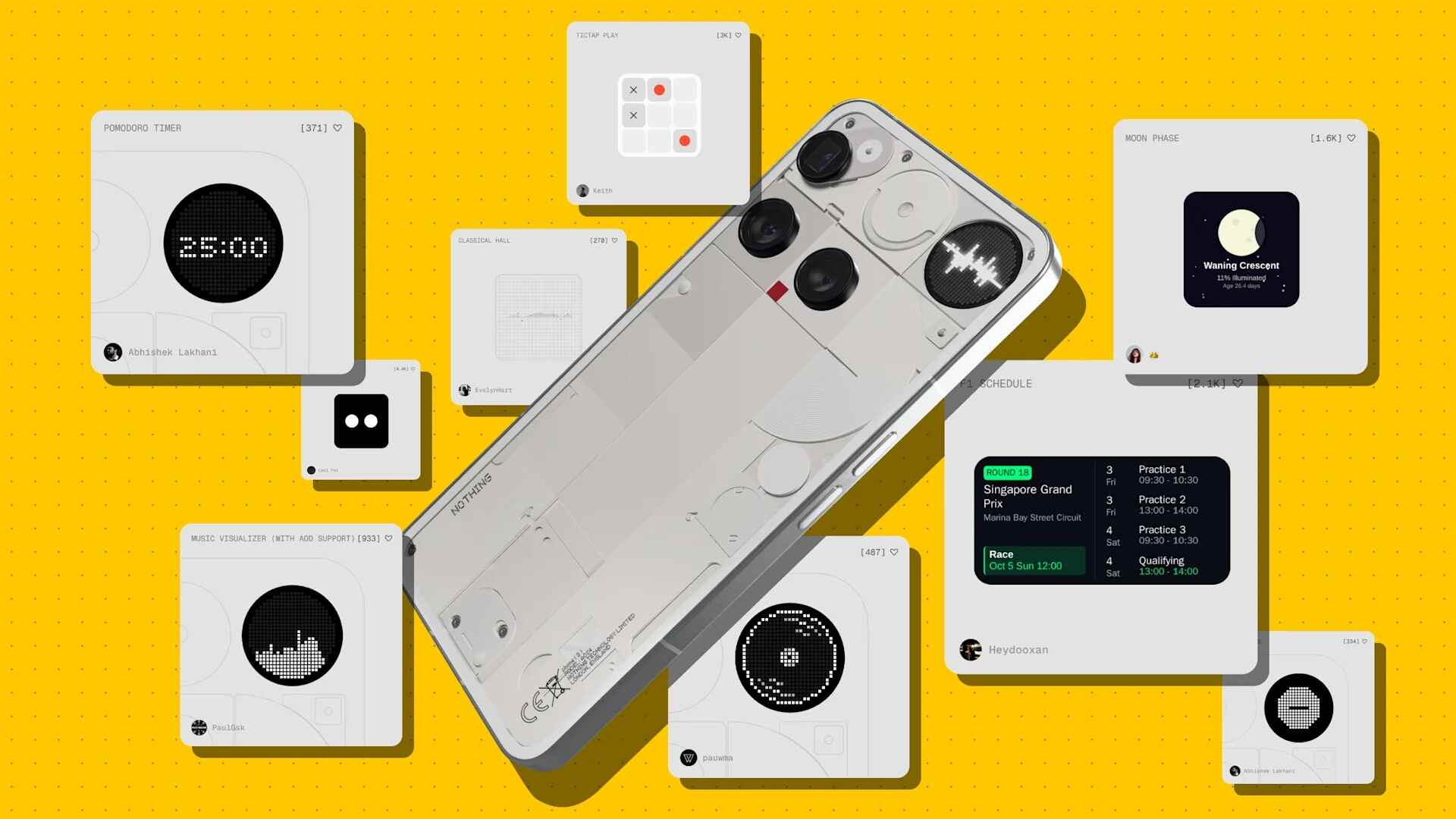- | 10:00 am
This Bahraini entrepreneur aims to clean up the menstrual care industry
As Shereen Abdulla leads the charge in redefining period care, her vision reflects a commitment to convenience, education, and empowerment.
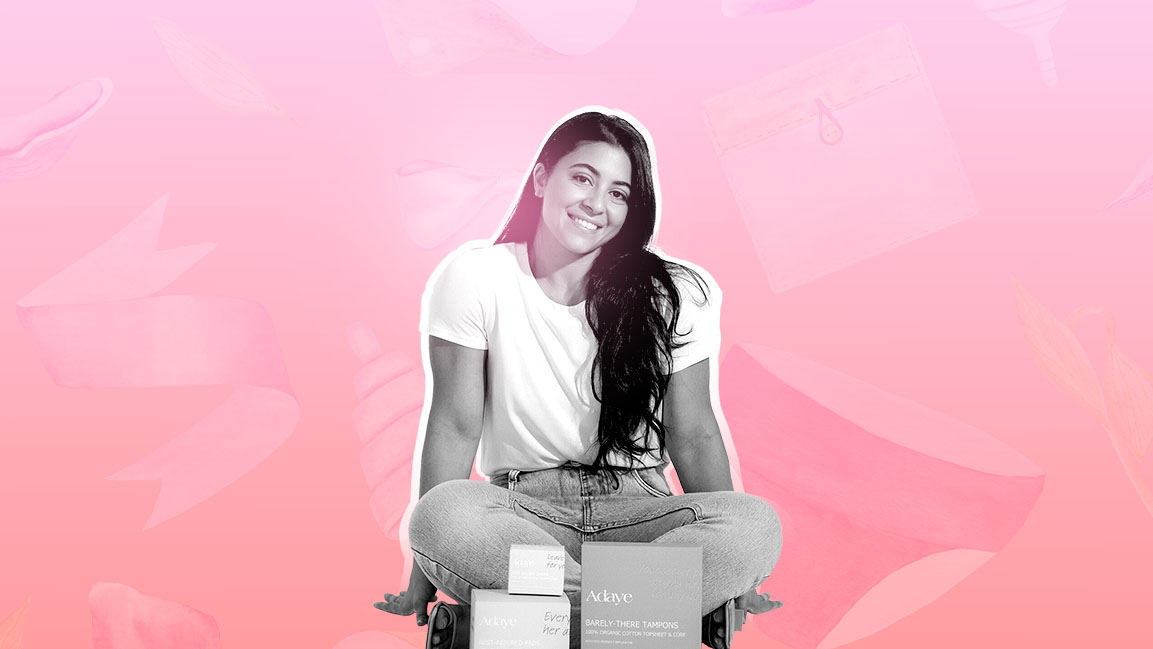
Some startups are born to capitalize on a need, while others arise when a personal experience turns out to be a shared challenge of millions of others. Such is the story of Adaye, a femtech startup started by Shereen Abdulla from Bahrain, who struggled with PCOS, uterine fibroids, and thyroid imbalance for years. “I realized that living clean and toxin-free isn’t just a choice; it’s a necessity,” she says.
Her interest in the sanitary products segment led her to uncover the period industry’s environmental impact and its heavy reliance on plastic-based products. Conventional menstrual pads contain up to 90% plastic, while tampons may contain as much as 6% plastic (excluding the applicator).
A typical non-organic menstrual pad can decompose within 500 to 800 years, breaking down into harmful microplastics that linger in our ecosystems for centuries.
“For the femtech industry, addressing this environmental impact is crucial,” she says.
“Femtech companies can significantly reduce the waste generated by menstrual products while supporting women’s and the planet’s health,” she adds.
DEVELOPING GENTLER CARE
Abdulla says there is a lack of information about what products are made of. “Many women use products unknowingly that compromise their health,” says Abdulla. These products are filled with irritants, synthetic fragrances, and harmful chemicals.
“Women are not to blame for their lack of knowledge as manufacturers of pads and tampons are not required to disclose the materials used in their products, leaving women in the dark,” she says.
However, she designed products for her brand to address the lack of product information.
“We believe that women deserve to know exactly what’s in the products they’re using,” adding, “Unlike conventional period care brands, we list all the materials in our products, layer by layer.”
She says every ingredient is intentionally selected to be gentle on the body and kind to the environment, ensuring that women can trust their menstrual care is safe.
DESIGNING GENTLER CARE
Today, the branding of women’s personal care items is quite similar. Many brands adopt a cookie-cutter approach that uses floral, pink, purple, and white elements to give products a more dreamy appearance. For Adaye, Abdulla wanted to think outside the box.
“We wanted to stand out by branding ourselves differently from typical period care products,” she says.
Instead of leaning into the conventional “personal care” aesthetic, Adaye positions itself more like a beauty and wellness brand— something you’d expect to find at Sephora rather than a drugstore, Abdulla says.
This vision is reflected in every aspect of Adaye’s packaging design, including the color scheme and materials. The product palette is designed to resonate with Gen Z and millennials—Adaye’s target audience.
The brand aims to achieve a balanced mix of modern, vibrant tones that avoid clichéd feminine stereotypes while remaining approachable and fresh.
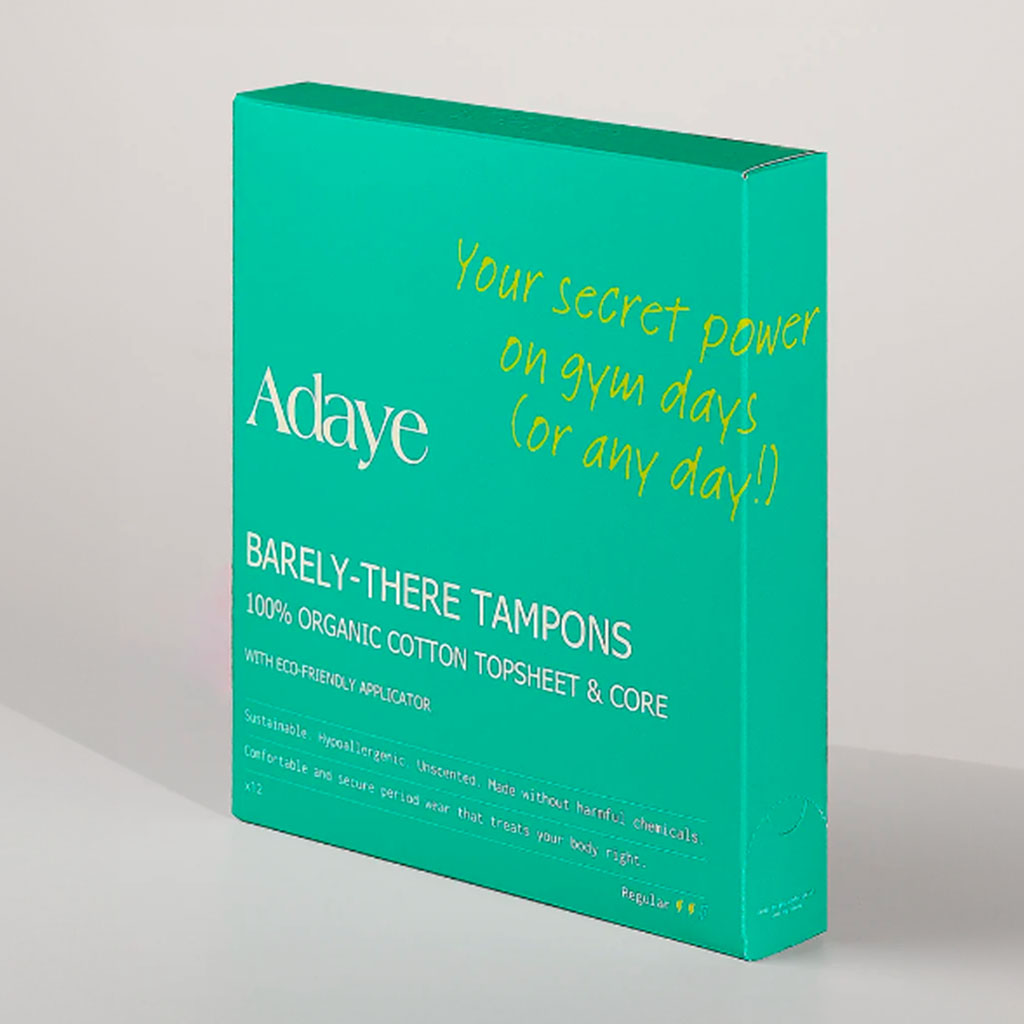
Courtesy: Adaye
In addition, the brand name Adaye is a play on the word “Ada,” which means “period” in the Khaliji Arabic dialect. She says each product name reflects the “frank and transparent” approach they aim to take with customers.
“Our product names are honest—no gimmicks, just clarity.”
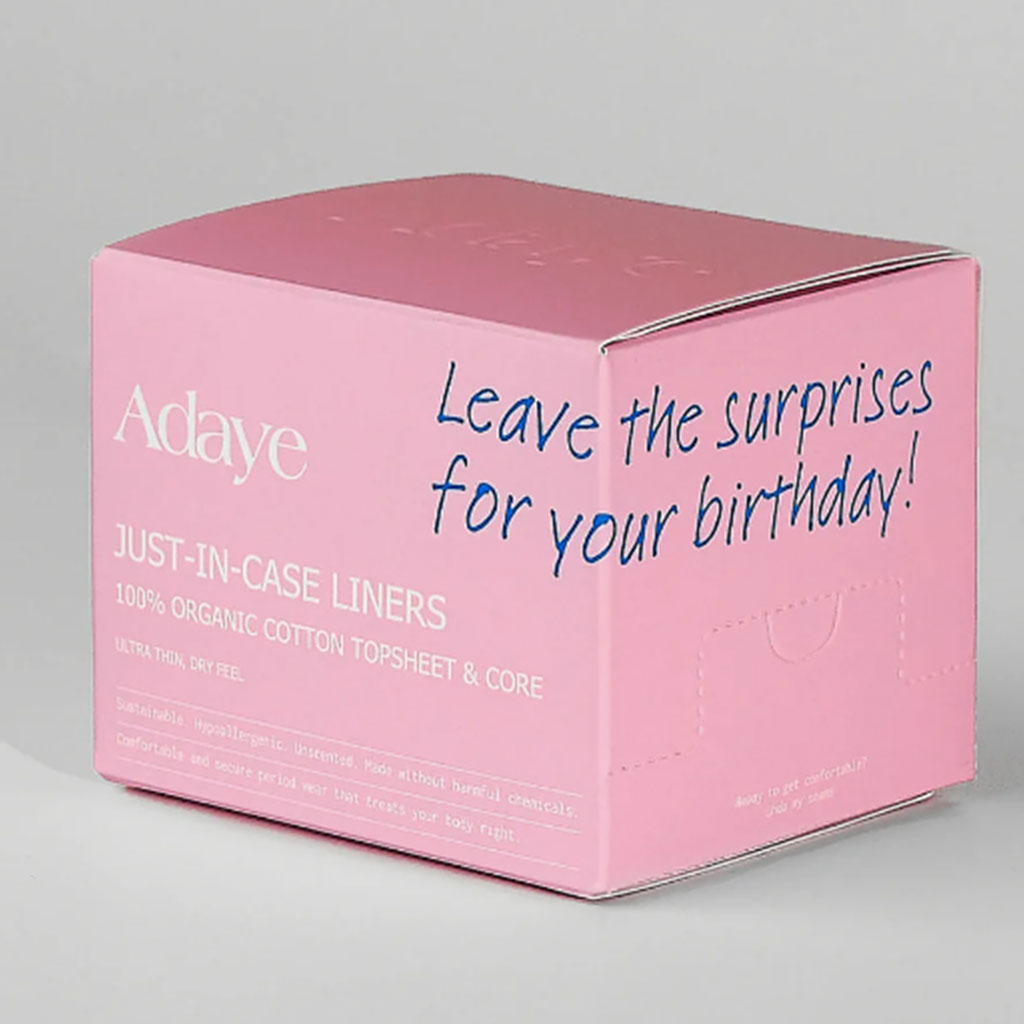
Courtesy: Adaye
“Beyond each product’s aesthetic appeal, the messaging is designed to speak directly to women in their most vulnerable moments—like when they’re alone in the bathroom and reach for these products,” says Abdulla.
Functional and designed as a dispenser, the packaging prioritizes convenience. “Women can display these products on their bathroom counters rather than hide them in drawers,” says Abdulla. Each product—tampons, pads, or liners—is individually wrapped and designed to slip easily into women’s bags.
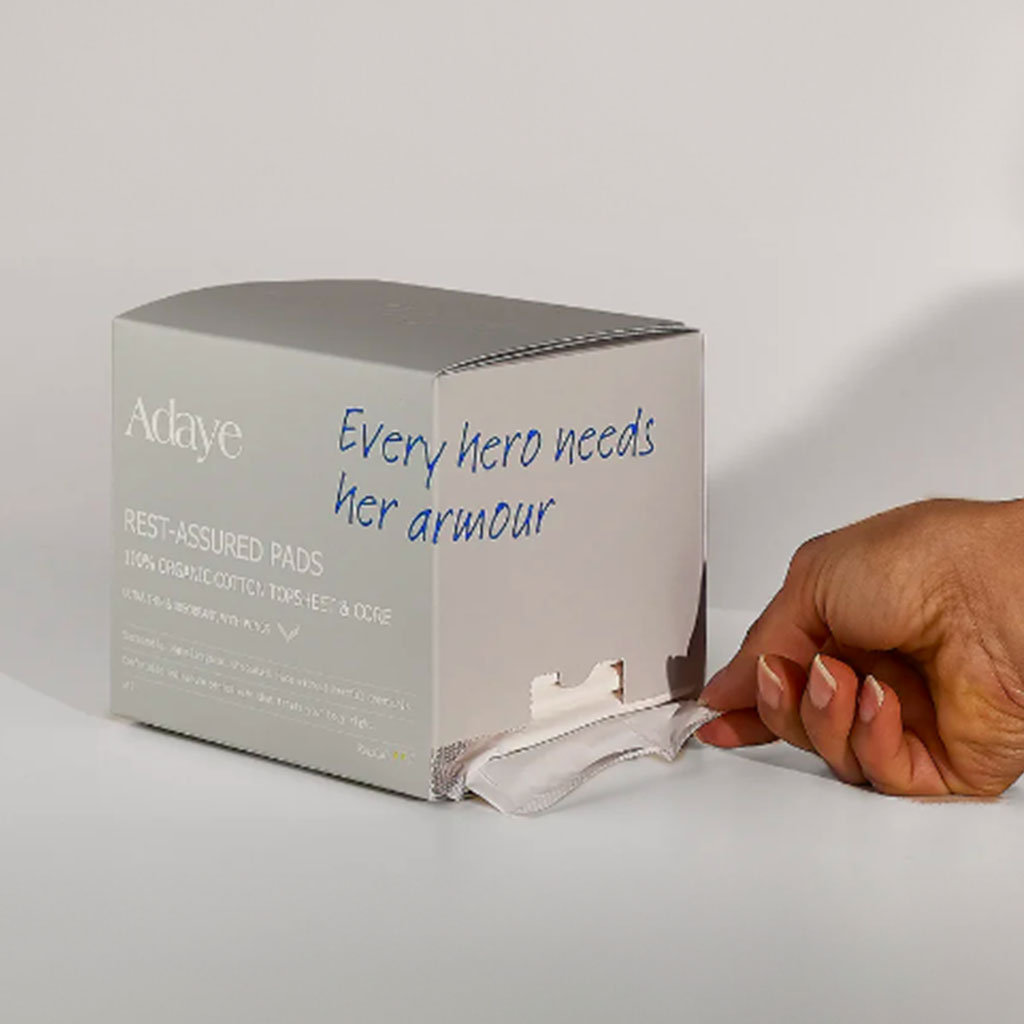
Courtesy: Adaye
“Whether they take the whole box or just one, we wanted them to be easy to carry, offering women on-the-go convenience that they are proud and confident to use without sacrificing quality or performance,” Abdulla says.
SUBSCRIPTION MODEL
In a world where convenience is currency, Abdulla emphasizes why she introduced her products through a subscription model. “The subscription model allows us to take the burden off women’s shoulders, ensuring they always have what they need when needed. This way, they’re never stranded on the first day of their period because they forgot to stock up.” This focus on convenience reflects a broader trend toward creating user-friendly solutions tailored to women’s lifestyles.
Abdulla is optimistic about expanding product offerings. “Currently, we offer additional products to enhance the period experience, like hot water bottles and candles,” she says.
“We plan to expand further within period care, including reusable solutions, as well as across other areas of period management, such as supplements and treatments,” she adds.
However, Abdulla emphasizes that growth is not defined by adding new products.
“We also want to support female communities by offering multimedia educational resources — including blog articles and podcasts curated by gynecological experts — to build a comprehensive support system for women’s health,” she adds.
As Abdulla leads the charge in redefining period care, her vision demonstrates a commitment to convenience, education, and empowerment.














